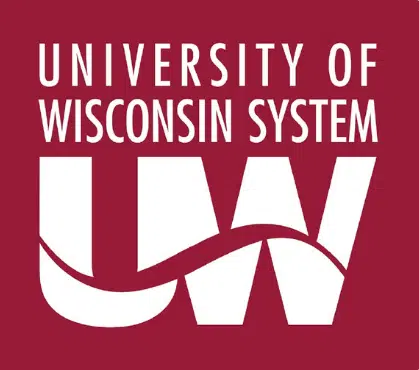MADISON, WI (WTAQ-WLUK) -As a legislative study committee continues to examine the future of the Universities of Wisconsin, some agree the current structure is outdated.
The current Universities of Wisconsin system was officially made state law in 1974, having all 13 universities under a single Board of Regents.
Now, one idea is to have UW-Madison branch off from the other 12 schools.
It’s something a former regent is in favor of.
“It’s a unique institution. It’s a R&D [research and development], serious R1 R&D institution. It is world-class still, and frankly, I would say if we don’t separate, it’s going to continue this downward cycle, which concerns me,” said Scott Beightol, a member of the Legislative Council Study Committee on the Future of the University of Wisconsin System.
As some universities face declining enrollment, others, like UW-Oshkosh, face structural deficits.
The committee has been discussing what changes could make a positive impact for all schools in the system.
State Representative Amanda Nedweski, R-Pleasant Prairie, chairs the committee.
“I’m not saying I recommend this. I believe that it’s possible that if there were two separate systems of governance for the comprehensives, and for UW-Madison, that the great light that is the flagship that sort of overshadows everybody else, would move over to the side and then will still be a shining light,” said Nedweski in an interview with FOX 11 Thursday. “But everyone comes out of the shadows and then we can really take a closer look at what’s been hiding in the background, what are the, you know, whether it’s those demographic issues, regarding enrollment.”
However, others aren’t sold on the idea — one of those being Democratic Governor Tony Evers, who spoke with FOX 11 Wednesday about the idea.
“Tell me why that’s a good idea. I have no idea, I mean, we have a system and it works. It’s underfunded, but it works,” said Evers.
Universities of Wisconsin President Jay Rothman is also not on board.
A statement provided to FOX 11 reads:
We welcome ideas, especially how to best serve students and Wisconsin families. The most pressing challenge facing our public universities, however, is the fact that Wisconsin universities are in the bottom 10 in state public funding nationally, while our neighboring states are all in the top 10. Wisconsin ranks 43 out of 50 states. That is alarming. Decades of neglect in public funding threaten access and affordability, which are most critical to helping Wisconsin students and their parents.
Our universities are better together, in that they provide Wisconsin students unprecedented educational opportunities in every corner of our state. At a time when we need to address all the challenges in higher education comprehensively, adding more governance, complications, and inefficiencies would not serve Wisconsin families and taxpayers well.
Echoing that sentiment is UW-Madison Chancellor Jennifer Mnookin, saying:
As the flagship university within the Universities of Wisconsin, it is true that we have different opportunities and challenges than the comprehensive universities. It is vitally important that these continue to be addressed, both for UW-Madison’s future and the future of our universities as a whole. We believe it is not only possible but preferable to address these issues and these differences within our existing governance structures.
The study committee plans on bringing a recommendation to the legislature for the next session in 2025, though it’s unclear if that could include changes to the system on a structural level.






Comments